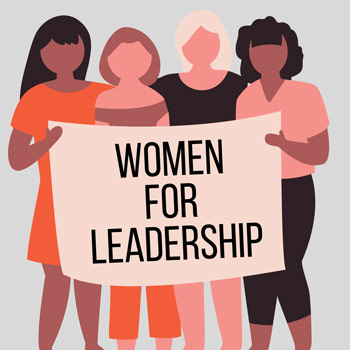To Prevent War and Militarism Globally, We Must Elect More Women
Published on September, 50 2021
By Anne Hoiberg
Retired research psychologist
WILPF San Diego
October 2021
As we acknowledge the 76th year since the atomic bombings of Hiroshima and Nagasaki, we are reminded of former soldier turned conscientious objector Shelley Anderson’s comments about the unimaginable consequences of those bombings. Upon meeting a Japanese woman whose daughter had had several miscarriages and an American woman whose husband — a U.S. soldier in Japan after the bombings — had died of leukemia, peace activist Anderson said, “So this is what war is really like: victims and victimizers, both living in fear, over three decades after the war had ended.” Survivors have lived with the fear of contracting nuclear-related diseases and with the stigma of being unmarriageable, unable to bear children, or birth a baby with genetic defects.
Other consequences of militarism and war point to the fears of losing power on a military, political or economic level, nationally or internationally. According to Clark University’s professor Cynthia Enloe’s extensive research on militarism, these fears of losing power receive more importance than fears about the human consequences of militarism and war. Because most people in the world who hold military, political and economic power are men, the endeavors behind militarism are clearly gendered and patriarchal.
To avoid such consequences as well as civilian deaths, military deaths and injuries, environmental devastation, infrastructure destruction, and loss of economic stability, we need to adopt conflict prevention and “save succeeding generations from the scourge of war.” (Preamble of the United Nations Charter)
In a proposal to prevent war and militarism globally, I single out the importance of electing women to public office by presenting results of a greater likelihood of peace and stability in countries with women leaders of state or government. A recent search of Wikipedia and other resources identified 28 who serve as the head of either their government or state, including the longest-serving Germany’s Chancellor Angela Merkel. Estonia and Moldova are unique in that both their prime minister and president are women. Other woman-led countries include Bangladesh, Norway, Nepal, Taiwan, Serbia, Singapore, New Zealand, Iceland, Trinidad and Tobago, Barbados, Ethiopia, Georgia, Slovakia, Denmark, Finland, Greece, Gabon, Togo, Lithuania, Tanzania, Kosovo, Samoa, and Uganda. At present, none of these countries, except Ethiopia, is engaged in armed conflict with another country.
The Inter-Parliamentary Union compiles listings of women elected representatives who serve in parliament or the lower or single house of government. According to data published in September, 25.6 percent of those in elected office worldwide are women and 58 countries have at least 30 percent women with 22 of the 58 countries located in Europe. The United States is ranked 71st with 27.6 percent women elected to the House of Representatives. The 58 countries with high representation are the most peaceful nations worldwide, with Mexico the exception because of its drug war. Thirteen countries identified as having more than 50 percent women in their managerial positions also reflect endeavors promoting conflict prevention.
 The Guardian reported last year that woman-led countries reported fewer deaths and cases of COVID-19 than countries governed by male leaders. Such women leaders as Merkel, New Zealand’s Jacinda Ardern, Denmark’s Mette Frederiksen, Taiwan’s Tsai Ing-wen, and Finland’s Sanna Marin responded early in the pandemic by initiating lockdowns. During the early phase of the pandemic, these and other women leaders also engaged in immediate press conferences, social media, and television programs with preventative instructions — and decisiveness.
The Guardian reported last year that woman-led countries reported fewer deaths and cases of COVID-19 than countries governed by male leaders. Such women leaders as Merkel, New Zealand’s Jacinda Ardern, Denmark’s Mette Frederiksen, Taiwan’s Tsai Ing-wen, and Finland’s Sanna Marin responded early in the pandemic by initiating lockdowns. During the early phase of the pandemic, these and other women leaders also engaged in immediate press conferences, social media, and television programs with preventative instructions — and decisiveness.
Women’s peacemaking skills also ensure that their countries address and abolish all forms of violence against women. However, this form of conflict prevention must include men, the major perpetrators of such violence. Beginning with education at all levels, boys and men learn the importance of preventing all levels of violence from bullying and sexual harassment to war.
Human trafficking also falls in the category of violence against women. Woman-led countries and those with 30 percent or higher representation of women in elected office received the highest rating in the U.S. State Department’s annual Trafficking In Persons Report.
It is essential that we recognize the importance of training, recruiting, and electing women as leaders and lawmakers in many more of the 193 member states of the United Nations. With women as elected leaders and lawmakers, the whole area of conflict prevention will be addressed and accomplished.
This submission is based on Anne Hoiberg’s opinion piece published in the San Diego Union-Tribune.



